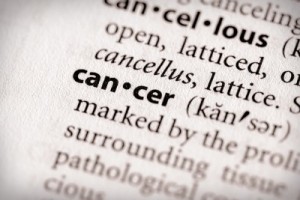 Did you know that April is Cancer Awareness Month? One might wonder what the connection is between oral health and cancer especially when the cancer affects different organs in the body. However, the connection is more closely interlinked than what many people expected it to be.
Did you know that April is Cancer Awareness Month? One might wonder what the connection is between oral health and cancer especially when the cancer affects different organs in the body. However, the connection is more closely interlinked than what many people expected it to be.
Oral health has been linked to overall health and many studies have been conducted to shed light on this topic. At Specialist Dental Group, we feel that it is part of our responsibility to share the knowledge about the relationship between cancer and dental health and how important it is to take care of both aspects to have a better quality of life.
Before Cancer Treatment
When chemotherapy or radiation treatment is prescribed for a cancer patient, it is in the patient’s best interest to schedule a dental assessment with a dental specialist prior to undergoing the treatment. This is to identify and address any underlying dental issues before chemotherapy starts as the immune system will be significantly compromised once the patient starts on the chemotherapy treatment.
The mouth is a cavity that contains a myriad bacteria at any given time, even for a healthy person. Therefore, it is imperative for cancer patients to go for a thorough dental check-up and cleaning by the dentist because the presence of these bacteria increases the likelihood of it entering the bloodstream, thus increasing the risk of infection for those with decreased immunity.
After Cancer Treatment
After the cancer episode is over, a cancer patient’s health condition is usually still weaker than that of a healthy person. Therefore, it is important to update the attending dentist about the patient’s medical history before any dental procedures are done.
Routine dental procedures such as tooth extractions would be approached differently when cancer patients are involved. This is because the quality of the bones of cancer patients may be altered from previous chemotherapy or radiation as these treatments slow down or stop the growth of new cells. The dentist will try his or her best to save a toothwhere possible due to the slower healing process for wound sites after extraction. In some cases, the bone around the infection area could die (this is known as bone necrosis).
If you would like to keep updated on the latest (and interesting) dental news, subscribe to our blog posts. Visit our website for more information or to make enquiries or appointments.





